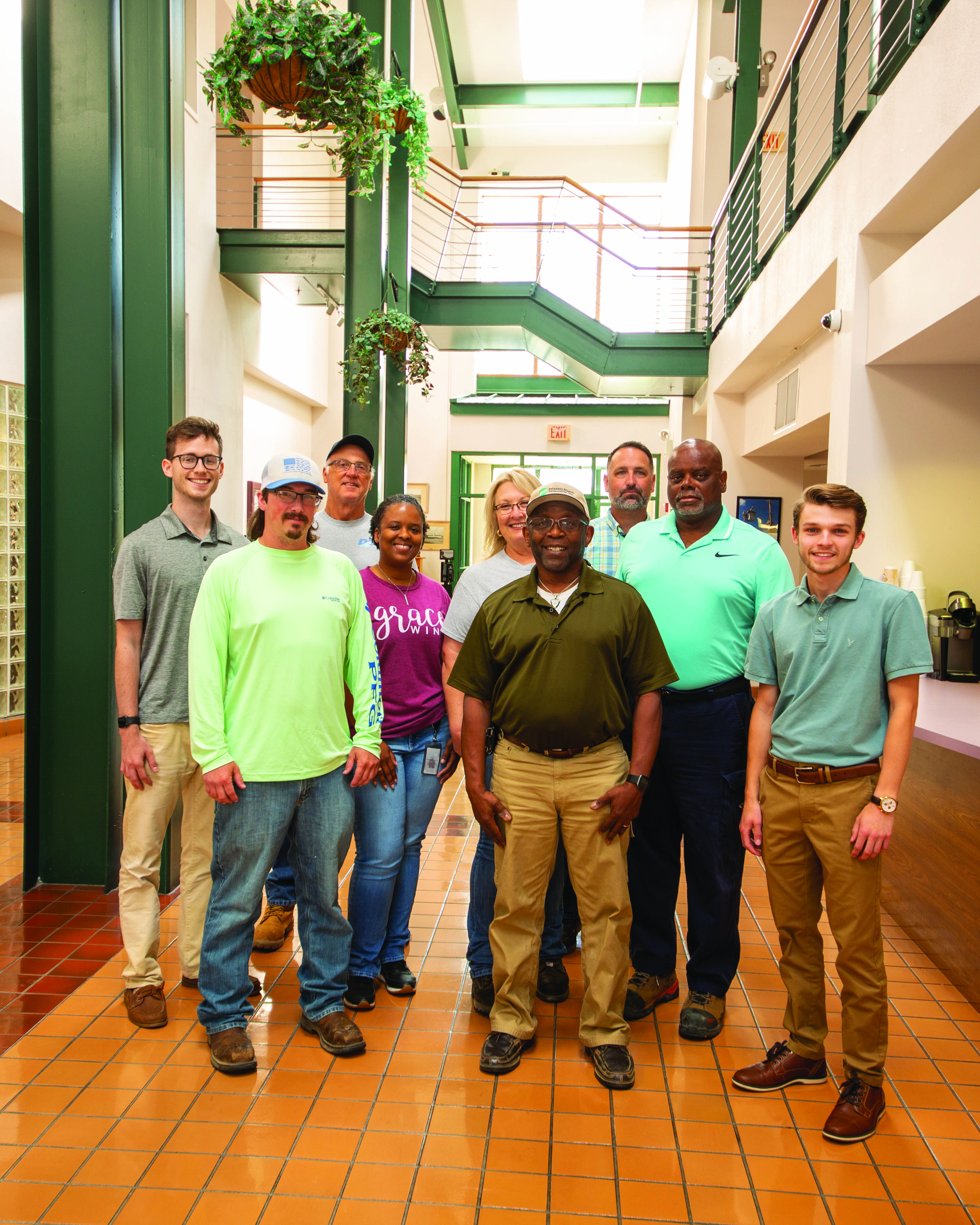Co-op Creativity: Engineering's Role in Powering DEC Members
Mar. 14, 2022 | Co-op News

It’s sometimes overlooked, but one of the must-have qualities of any employee at an electric utility is creativity. For example, consider engineers. They’re the ones responsible for the ongoing saga that is the Co-op’s service area, imagining creative ways to provide electric to the growing number of people and places we power. The cool thing about their creations? When they are complete, they come to life, energizing the homes and businesses that make up our communities. At DEC, it’s a long road between concept and creation, one built on ingenuity, meticulous planning and most importantly, hard work.
“Engineering is basically responsible for all new work at DEC,” Vice President of Engineering Troy Dickerson says. “All that comes through us, and we’re the ones who do the initial design. We’re the ones that do the design for all new electrical services and revamps within the company.”
Seems like a lot of pressure, right?
Getting the ball rolling on all that new work is a two-step process, one that starts on the new service side of Engineering and ends with the field engineers. When an application for work comes in – a member wants their meter pan moved, or a development requires wiring for streetlamps, for example – new service reviews that order to make sure it meets DEC’s criteria. Once it is cleared, it’s passed on to a field engineer. The field engineer designs the work for the new service, which means they are the ones out in the field physically plotting out the location and direction our lines will go on a property to provide power to the member.
According to field engineer Amanda Breasure, the work is all about problem solving.
“We’ve got to figure out how to get electric from point A to point B, the most efficient way we can. The most cost-effective way,” Breasure says. Needless to say, field engineers wear many hats, and this varied skill set is required to do the job well.
“You’ve got to have a lot of time management, organizational skills, customer service skills. You’re a jack of all trades in this department,” Breasure says.
Clearly, becoming an engineer is not an overnight process. There is a lot to learn. Those interested in becoming a field engineer start their formal training as – you guessed it - a trainee, then work their way up through the levels of apprentice, technician and engineering associate, taking classes and exams before officially earning the title of a full-fledged engineer. But Breasure believes the real learning starts outside the classroom.
“It’s a lot of field training,” Breasure says. “That’s how you learn your job.”
Field engineer Doug Hudson agrees with, as he puts it, this “boots on the ground” philosophy.
“It looks easy from a distance, until you get in here,” Hudson says. “If anyone wants to come in here, they better know they’re going to work.”
That “work” often entails more than the general job description. Every line of work has its own challenges, but just as there are a variety of day-to-day tasks engineers have to complete, there are just as many obstacles they have to overcome.
“Forces sometimes work against us,” Hudson says. “That could be weather, that could be material, that could be anything.”
And those are just external factors. Then there are the challenges of the design work itself. When planning the electrical layout of a neighborhood, or even just a single home, it’s a process. Once engineers have finished their design and accounted for all the technical logistics, there are permits to get, approvals to meet – sometimes from the state, sometimes from the members, sometimes both. While it’s all part of the job, it doesn’t make it any less demanding. Engineering is all about balance.
“It’s not just, ‘Here – put it on the computer,’” Breasure says. “There’s a lot of brain work that goes into this, because if you don’t balance it out right, or you don’t have your tie lines in there and they need to back feed, we don’t have the reliability the Co-op is known for.”
“We’re a part of the reliability puzzle. Think about it: a new member coming in from New York or New Jersey – and they don’t know anybody. But they see us for the first time, they see the Co-op for the first time, and you know, first impressions as they say are lasting,” Hudson says. “So, if we make this process a smooth process, they’re going to feel good about the Co-op going forward. But if it’s a bad process in the beginning, then then they’re going to feel bad about the Co-op. That’s just the way it is.”
Last year, DEC set some major records. Not only in reliability, but also in the overall growth of our system. Engineering received over 4,000 new service applications and staked over 6,000 jobs, the most in Co-op history. A large part of that achievement is thanks to our engineers. It’s because of their ability to create – whether it’s new ideas, the electrical designs themselves, or creating relationships between the Co-op and the community – that will keep DEC and all it stands for on track to innovate for decades to come.